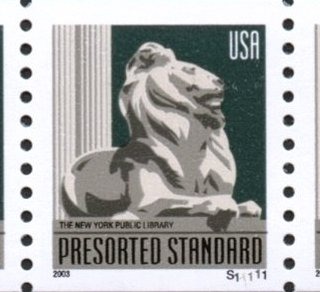Boned Agian

I wrote about this the first time when I read the book and found myself simultaneously furious and disappointed at the ending. I'm talking about The Lovely Bones. Now, one of my favorite young actresses, Saoirse Ronan, is playing the dead-girl lead, Susie Salmon. Isn't that a name that just screams DC Comics? Right up there with Lois Lane, or Lex Luthor, only cutesy, wholesome, and innocent, like Raggedy Ann.
I'm sure she'll do just fine, financially and career-wise, but I think making someone so alive "do" dead is a criminal act. That's not to mention the mental gobbledy-gook this "story" reinforces. I was so annoyed by the book that I went looking for reviews that might help me understand the cause of such a visceral reaction. I found Wonder Bread, by Melvin Jules Bukiet, on The American Scholar. He nailed what is so profoundly wrong with this lovely finger painting of a picture much better than I ever could.
(Spoiler alert) Excerpt:
Generally speaking, the sex-murder of an adolescent offers little that’s good. But in The Lovely Bones, mom and pop hook up and so do Ray and Ruth, whose body Susie is allowed to occupy just long enough to have real, true, beautiful sex for once in her afterlife. “I had never been touched like this,” she tells us. “I had only been hurt by hands past all tenderness. But spreading out into my heaven after death had been a moonbeam that swirled and blinked on and off. . . . Inside my head I said the word gentle.” The book ends with a glow.
Every impulse in every sane reader must shriek No! at this pabulum. It’s not lovely that Susie’s been slaughtered, hacked, and dumped in a pit. It’s not lovely that icy Mr. Harvey gets his comeuppance by a conveniently dropped icicle as the pit containing Susie’s body parts is being drained, leading us to assume that her remains will be found and that she will finally get a lovely stone.
Nice thought if you can abide it. Unfortunately, it’s false to all human experience to find “growth” in tragedy. In fact, the dull truth is that pain is tautological. The only thing suffering teaches us is that we are capable of suffering.
I'm sure she'll do just fine, financially and career-wise, but I think making someone so alive "do" dead is a criminal act. That's not to mention the mental gobbledy-gook this "story" reinforces. I was so annoyed by the book that I went looking for reviews that might help me understand the cause of such a visceral reaction. I found Wonder Bread, by Melvin Jules Bukiet, on The American Scholar. He nailed what is so profoundly wrong with this lovely finger painting of a picture much better than I ever could.
(Spoiler alert) Excerpt:
Generally speaking, the sex-murder of an adolescent offers little that’s good. But in The Lovely Bones, mom and pop hook up and so do Ray and Ruth, whose body Susie is allowed to occupy just long enough to have real, true, beautiful sex for once in her afterlife. “I had never been touched like this,” she tells us. “I had only been hurt by hands past all tenderness. But spreading out into my heaven after death had been a moonbeam that swirled and blinked on and off. . . . Inside my head I said the word gentle.” The book ends with a glow.
Every impulse in every sane reader must shriek No! at this pabulum. It’s not lovely that Susie’s been slaughtered, hacked, and dumped in a pit. It’s not lovely that icy Mr. Harvey gets his comeuppance by a conveniently dropped icicle as the pit containing Susie’s body parts is being drained, leading us to assume that her remains will be found and that she will finally get a lovely stone.
Nice thought if you can abide it. Unfortunately, it’s false to all human experience to find “growth” in tragedy. In fact, the dull truth is that pain is tautological. The only thing suffering teaches us is that we are capable of suffering.
The Wonder Bread article is a long read, but well worth it. If you don't care to read it all, skip to the end and enjoy Bukiet's nice strong finish. You might not agree with his position, but this man knows how to support an argument.
Hat tip to the New Yorker cartoon for the tombstone idea.
Labels: Afterlife Belief, Literary Fluff, New Age, Revisionism, Saoirse Ronan, The Lovely Bones



